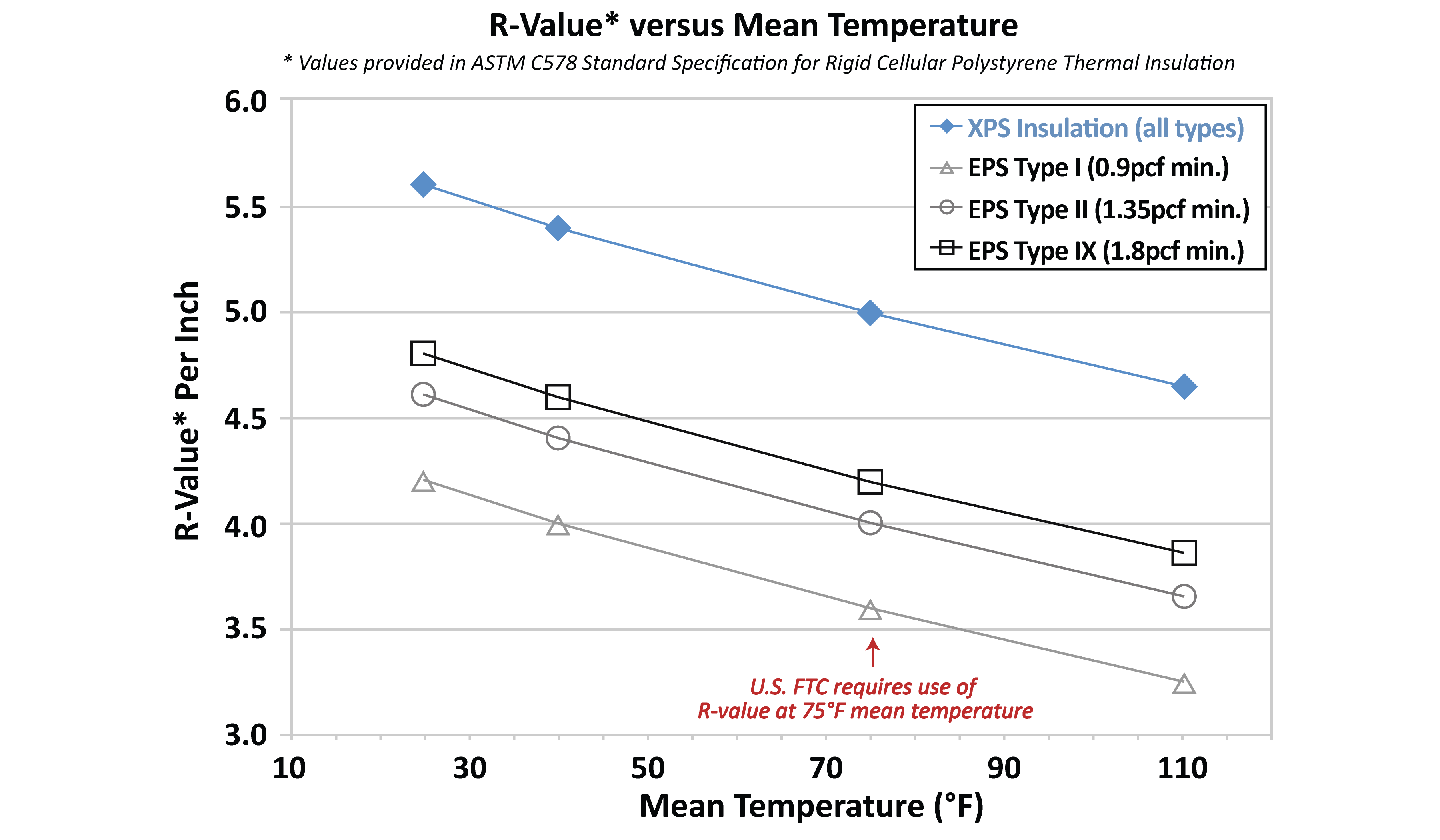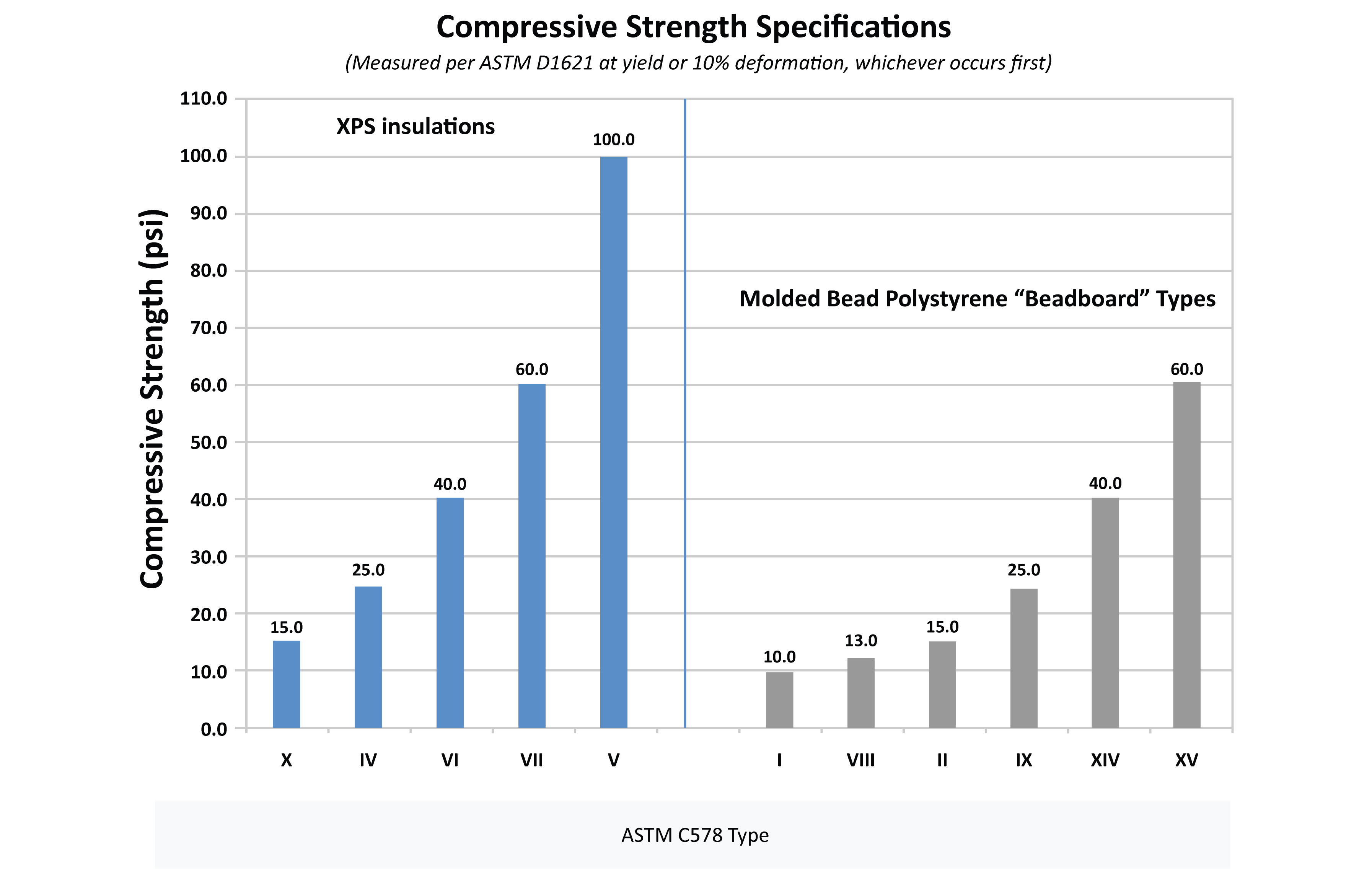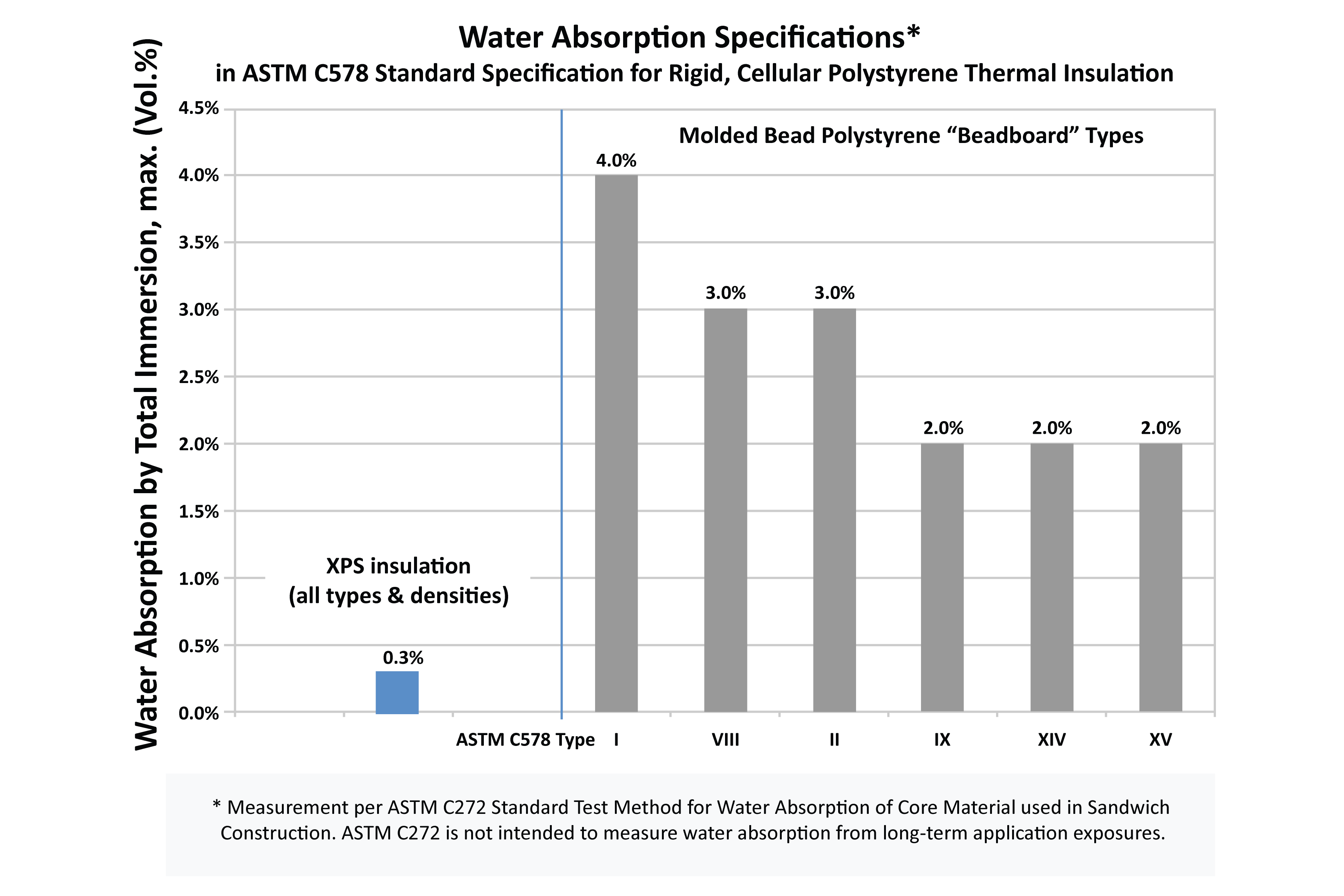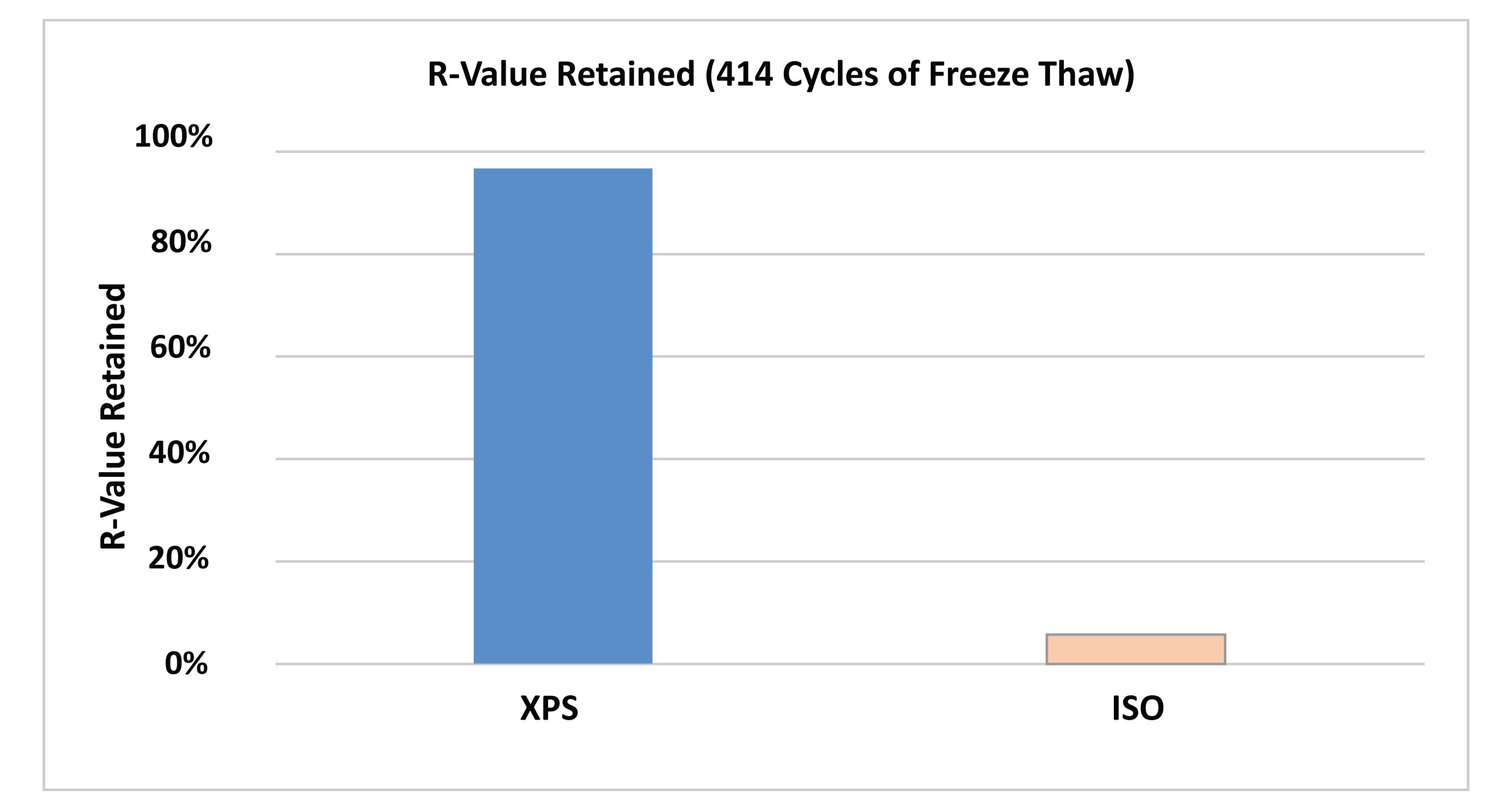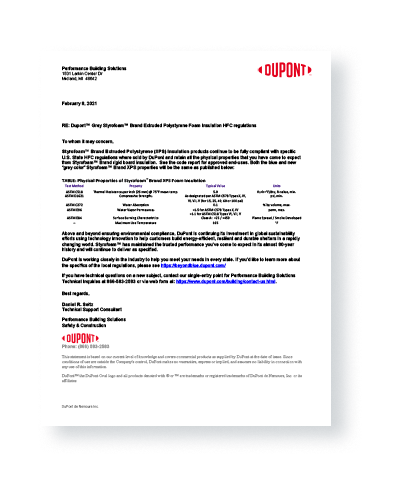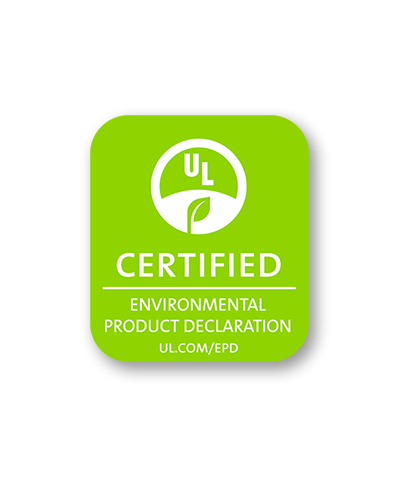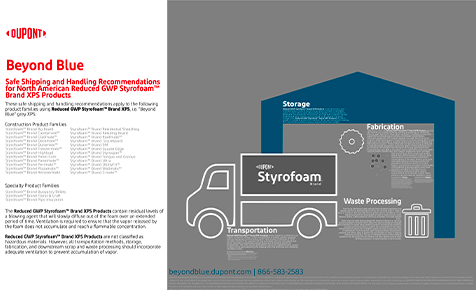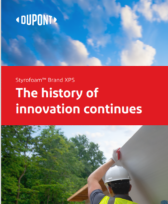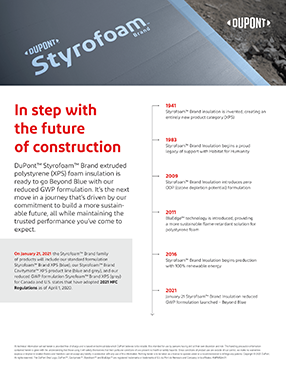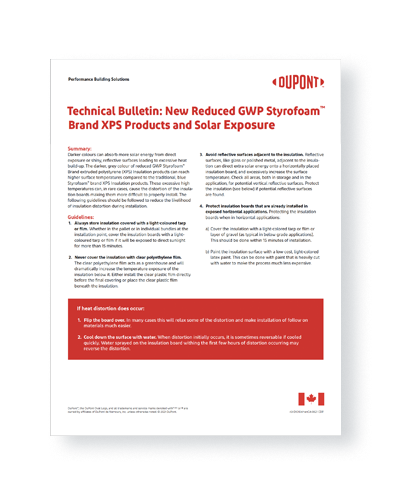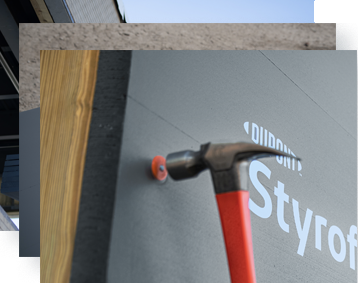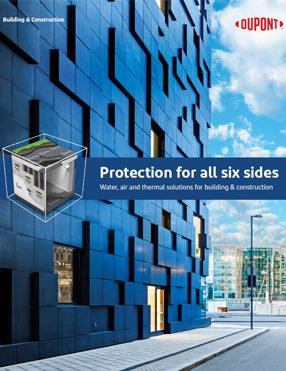XPS vs. ISO: A better choice for below grade
ISO and XPS foam – what’s the difference?
Unfaced polyisocyanurate (polyiso or ISO) foam does not have the same moisture, thermal or compressive strength properties as Styrofoam™ Brand XPS. For below-grade applications likely to encounter wet, low-temp as well as heavy construction equipment, Styrofoam™ Brand XPS has proven to stand the test of time over and over again.
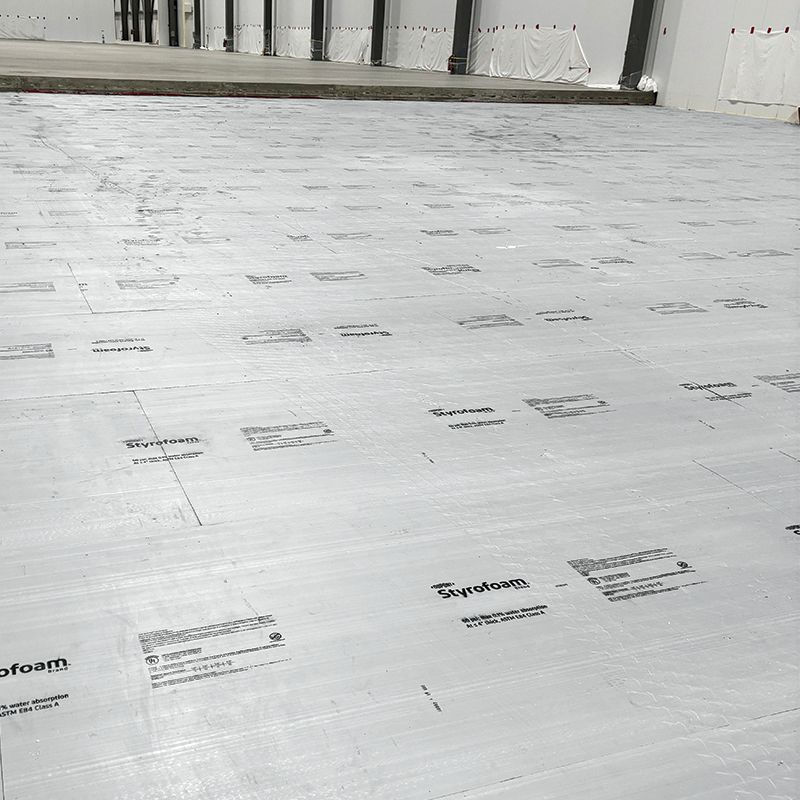
ISO and XPS foam – what’s the difference?
R-Value Retention
DuPont™ Styrofoam™ Brand XPS can outperform other insulation materials in maintaining R-value, even in extremely cold temperatures.
See chart
Compressive Strength Options
Styrofoam™ Brand XPS offers a variety of compressive strengths for both horizontal and vertical below-grade applications.
Lower Moisture Absorption
Styrofoam™ Brand XPS has significantly better moisture absorption properties, with only 0.1% absorption.1 Resilience to Long-Term Water Exposure Styrofoam™ Brand XPS delivers top performance and durability even in harsh conditions.2
Convenience
Styrofoam™ Brand XPS cuts easily and cleanly with a score and a snap, resulting in minimal mess and waste.
Technical information
Below-Grade Efficiency: Maximizing Performance with
Styrofoam™ Brand Insulation
A unique closed-cell structure gives Styrofoam™ Brand XPS its exceptional moisture resistance and enables it to retain a high, long-term R-value of R-5 per inch – even after exposure to standing water, wet soil and other damp conditions
Additional performance attributes of Styrofoam™ Brand XPS include:
- Meets ASTM C578 Types (refer to specific product information for details)
- Compliant with ICC-ESR 4755
- Provides a weather-resistant barrier to enhance the building’s resistance to air and moisture penetration
- Meets building code requirements of ASTM E84 Flame Spread Index of 25 or less and a Smoke Developed Rating of 450 or less
- Will not corrode, rot or support mold growth
- Available in wide range of compressive strengths from 15 to 100 psi, and minimum flexural strength of 40 psi
- Offered in various sizes, thicknesses and edge treatments to meet specific design needs, while ensuring energy efficiency and minimizing on-site cutting and waste
DuPont™ Styrofoam™ Brand XPS products are backed by the expertise of building science leaders dedicated to your success and warranties from a name you trust, including limited thermal warranties from 15 to 50 years including the Wall² system warranties and other system warranties.
Any questions?
The Styrofoam™ Brand was the original XPS, creating the product segment. Rooted in 80+ years of technical innovation, we’re excited to deliver a low-GWP XPS solution.
Let’s start a conversation about your next project.
Resources
Styrofoam™ Brand XPS Compliance Letter
U.S. AIM Act & Sell-through of Styrofoam™ Brand XPS Foam Insulation (2025)
Physical Property Equivalency Letter
Customer Processing and Transport Safe Handling
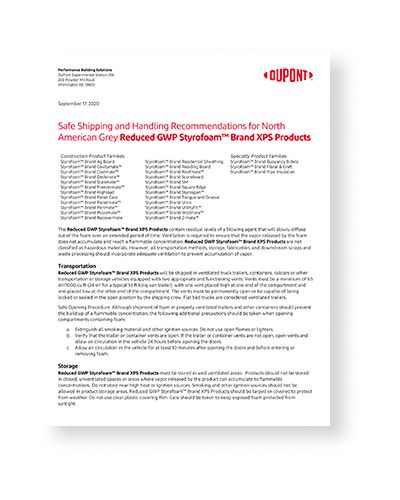
Safe Processing & Handling Graphic
Styrofoam™ Brand Product Brochure
Solar Exposure Technical Bulletin
Press Releases
September 9, 2024
English press release →
November 30, 2023
English press release →
June 8, 2023
English press release →
June 6, 2023
English press release →
July 26, 2021
English press release →
February 23, 2021
English press release →
August 13, 2020
English press release →
French PDF ↓
July 16, 2020
English press release →
French PDF ↓
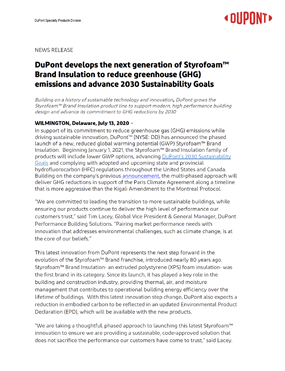
Styrofoam™️ Brand Low GWP XPS LEED Optimization Document - Embodied Carbon Assessment
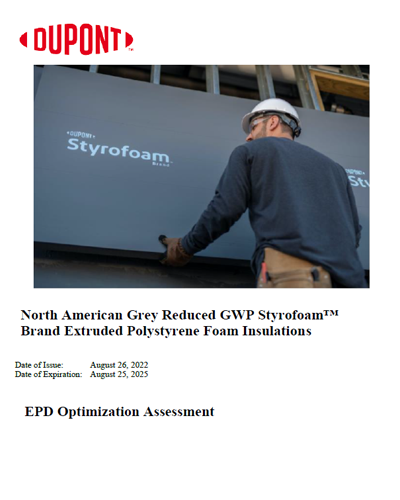
1 Typical value tested per ASTM C272, % by volume.
2Billy Connor, April 2019. “Comparison of Polystyrene Expanded and Extruded Foam Insulation in Roadway and Airport Embankments”. Alaska University Transportation Center, University of Alaska Fairbanks, (INE/AUTC 19.08). http://autc.uaf.edu/projects/2019/comparison-of-polystyrene-expandedand-extruded-foam-insulation-in-roadway-and-airport-embankments/
